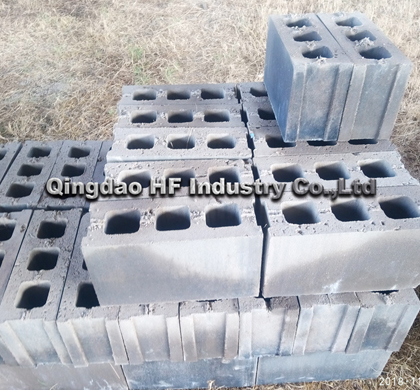The brick-making industry has seen significant advancements over the years, driven by technological innovations, environmental considerations, and evolving market demands. For manufacturers of brick making machines, staying abreast of these developments is crucial to remain competitive and meet the diverse needs of customers. This article provides a comprehensive update for brick making machine manufacturers, covering the latest technological advancements, sustainability practices, market trends, and operational efficiencies.
.jpg)
Technological Advancements
Automation and AI IntegrationOne of the most significant trends in brick making machine manufacturing is the integration of automation and artificial intelligence (AI). Modern machines are increasingly equipped with automated systems that can handle everything from raw material mixing to the final packaging of bricks. AI algorithms enhance the precision of operations by optimizing the production process, predicting maintenance needs, and minimizing human error.
.jpg)
Advanced Material Handling
Innovations in material handling technologies have greatly improved the efficiency of brick making machines. High-efficiency mixers and conveyors ensure consistent quality by uniformly blending raw materials such as clay, shale, and fly ash. Advanced feeding systems can precisely measure and distribute these materials, reducing waste and ensuring optimal brick quality.
.jpg)
Enhanced Kiln Technologies
Kilns are essential in the brick production process, and recent advancements have made them more efficient and environmentally friendly. Modern kilns use sophisticated temperature control systems to ensure uniform firing, which enhances the strength and durability of bricks. Additionally, new kiln designs reduce fuel consumption and emissions, aligning with stricter environmental regulations.
.jpg)
Sustainability Practices
Eco-friendly MaterialsThe push towards sustainability has led to the development of eco-friendly bricks, made from materials such as recycled waste, fly ash, and rice husk ash. These materials not only reduce the environmental impact of brick production but also provide better insulation and durability. Manufacturers must invest in research and development to incorporate these materials into their production processes effectively.
.jpg)
Energy Efficiency
Energy consumption is a major concern in brick making. Manufacturers are adopting energy-efficient technologies such as solar-powered brick making machines and energy recovery systems that capture and reuse heat generated during the production process. These innovations not only reduce operational costs but also minimize the carbon footprint of brick manufacturing.
.jpg)
Waste Management
Effective waste management practices are critical for sustainable brick production. Recycling waste materials from the production process and reducing waste generation through better process controls are key strategies. Additionally, manufacturers are exploring ways to use industrial by-products, such as slag from steel mills, as raw materials for brick making.
.jpg)
Market Trends
Customization and DiversificationThe demand for customized bricks has increased, driven by the need for unique architectural designs and specific construction requirements. Manufacturers are offering a wider range of brick sizes, colors, and textures to cater to these demands. Diversification into related products, such as pavers and blocks, is also a growing trend, providing manufacturers with additional revenue streams.
.jpg)
Geographic Expansion
Emerging markets in Asia, Africa, and Latin America present significant growth opportunities for brick making machine manufacturers. Urbanization and infrastructure development in these regions drive demand for bricks, necessitating the expansion of production capabilities. Establishing local manufacturing units or partnerships can help manufacturers tap into these lucrative markets.
.jpg)
Digital Transformation
The digitalization of manufacturing processes is transforming the brick making industry. Implementing Industry 4.0 technologies, such as the Internet of Things (IoT), big data analytics, and cloud computing, enables manufacturers to monitor and optimize their operations in real time. This digital transformation leads to improved efficiency, reduced downtime, and better decision-making.
.jpg)
Operational Efficiencies
Lean ManufacturingLean manufacturing principles are increasingly being adopted to enhance operational efficiencies. By eliminating waste, optimizing workflow, and continuously improving processes, manufacturers can achieve higher productivity and cost savings. Techniques such as just-in-time production and value stream mapping are particularly effective in the brick making industry.
.jpg)
Predictive Maintenance
Predictive maintenance uses data analytics and machine learning to predict equipment failures before they occur. This approach allows manufacturers to schedule maintenance activities proactively, reducing downtime and extending the lifespan of machinery. Implementing predictive maintenance systems can result in significant cost savings and improved operational reliability.
 - 副本.jpg)
Workforce Training
Investing in workforce training is essential for maintaining high operational standards. Continuous training programs ensure that employees are skilled in using the latest technologies and adhere to best practices in production and safety. A well-trained workforce is crucial for achieving operational excellence and meeting the evolving demands of the market.

The Molding Vibration Block Machine has a short forming cycle and high production output. The continuous increase in vibration frequency during material feeding and forming vibrations reduces the feeding time by 3 to 4 seconds. The table vibration machine

Brick manufacturing has been an essential part of construction for centuries, providing durable and aesthetically pleasing building materials. However, the process of producing bricks is not without its challenges. As the world becomes more environmentall

Whether for inquiries for inspections and
maintenance, for individual plant optimizations or
extensions, or spare and wear parts.

Our after-sales service is at your disposal for all
questions

Gemini Tower, Block B, Chunyang Road, Chengyang District, Qingdao, China
Show on the Map
We will contact you within 24 hours.